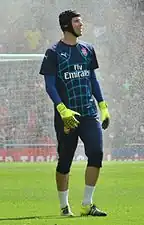Arsenal F.C.–Chelsea F.C. rivalry
The Arsenal F.C.–Chelsea F.C. rivalry is a rivalry between London-based professional association football clubs Arsenal Football Club and Chelsea Football Club. Arsenal play their home games at the Emirates Stadium, while Chelsea play their home games at Stamford Bridge.
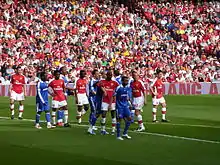 Arsenal and Chelsea players prepare for a corner kick during a Premier League match on 10 May 2009. | |
| Other names | North West London derby |
|---|---|
| Location | London |
| Teams | Arsenal Chelsea |
| First meeting | 9 November 1907 Football League First Division Chelsea 2–1 Arsenal |
| Latest meeting | 21 October 2023 Premier League Chelsea 2–2 Arsenal |
| Next meeting | 16 March 2024 Premier League Arsenal v Chelsea |
| Stadiums | Emirates Stadium (Arsenal) Stamford Bridge (Chelsea) |
| Statistics | |
| Meetings total | 208 |
| Most wins | Arsenal (82) |
| Top scorer | Didier Drogba (13) |
| All-time series | Arsenal: 82 Drawn: 60 Chelsea: 66 |
| Largest victory | Chelsea 6–0 Arsenal (22 March 2014)[1] |
Overall, Arsenal have won more games in the rivalry's history, having won 82 times to Chelsea's 66, with 60 draws (as of 21 October 2023).[2] Arsenal's record win was a 5–1 victory in a First Division match at Stamford Bridge on 29 November 1930. Chelsea's record win was a 6–0 victory at Stamford Bridge in the Premier League on 22 March 2014. Didier Drogba holds the mark for the most derby goals with 13 in all competitions.[3]
The clubs have contested five major finals: the 2002 FA Cup final, which Arsenal won 2–0, the 2007 League Cup final, which Chelsea won 2–1, the 2017 FA Cup final, which Arsenal won 2–1, the 2019 Europa League final, which Chelsea won 4–1, and the 2020 FA Cup final, which Arsenal won 2–1.
Background
While they never considered each other primary rivals, as two of the biggest and most successful clubs in London there has always been strong needle between the fans dating back to the 1930s. Matches between them would often attract large attendances.
The Arsenal and Chelsea rivalry has been more recently considered an important derby, after Chelsea's rise to the top class of the Premier League in the 2000s, when the two started to compete constantly for the Premier League title.
According to an internet survey of fans in December 2003, the Arsenal fans who responded to the survey said that they considered Chelsea as their third rival, after Manchester United and Tottenham Hotspur.[4]
Those Chelsea fans who responded to the survey said that they considered Arsenal as their main rival, however Tottenham and Fulham are their more traditional rivals.[4]
In a 2008 survey by the Football Fans Census, Arsenal fans named Chelsea as the club they disliked the most, ahead of their traditional rivals Tottenham. Chelsea fans named Arsenal as their second most-disliked club, behind Liverpool.[5] A 2014 Bleacher Report article ranks Arsenal as Chelsea's second-most hated rival.[6]
History
The first league meeting between the two teams took place on 9 November 1907 at Stamford Bridge. This was the first Football League First Division game played between two London clubs and drew a crowd of 65,000.[7] A match between the clubs at Stamford Bridge in 1935 drew a crowd of 82,905,[8] the second highest recorded attendance for an English league match.[9] They met in two close contested FA Cup semi-finals in the 1950s, with Arsenal winning both times. In the 1960s Chelsea dominated the tie with 14 wins, two draws and just two losses during the decade.[10]
The two teams have met in the quarter-finals of the 2003–04 UEFA Champions League, with Chelsea winning 3–2 on aggregate to go through to the semi-finals.[11]
In 2006, the transfer of Ashley Cole from Arsenal to Chelsea further stoked the rivalry, as Cole had been caught meeting Chelsea officials months before.[12]
The 2007 Football League Cup final was one of the most noted incidents. The game was marred by a fracas involving Frank Lampard, Cesc Fàbregas and others that resulted in yellow cards for the two and three other players sent off, the dismissal of Emmanuel Adebayor and incidents of Chelsea fans throwing celery at Arsenal players.[13] This led the media to dub it the "Snarling Cup final".[14][15] The match ended in a 2–1 victory for Chelsea.
On 27 December 2010, Chelsea came into the Emirates having beaten Arsenal five times in a row by a goal difference of 13–2, only for Arsenal to win the match 3–1.[16][17]
On 29 October 2011, Arsenal won 5–3 at Stamford Bridge after coming from behind twice, with Robin van Persie scoring two late goals and completing his hat-trick. It is widely regarded as one of the most memorable and best games between the two sides.[18][19][20][21]

On 22 March 2014, in Arsène Wenger's 1,000th game in charge, Chelsea won 6–0. This marked the most goals Chelsea had scored against Arsenal, Chelsea's biggest margin of victory against Arsenal and the joint heaviest margin of defeat suffered by Wenger at Arsenal.[22] Notable incidents in the match included Chelsea jumping out to a three-goal lead inside of 15 minutes, as well as the sending off of Kieran Gibbs by referee Andre Marriner for a handball committed by his teammate Alex Oxlade-Chamberlain.[23]
On 5 October 2014, Chelsea beat Arsenal 2–0, which meant Arsenal manager Wenger had not won against José Mourinho in twelve attempts. This game also featured former Arsenal captain Cesc Fàbregas playing against his former club for Chelsea for the first time, recording an assist on Diego Costa's goal. The match, however, is most notable for a touchline fracas that occurred between the managers in the technical area during the fierce match.[24] On 2 August 2015, Wenger finally recorded a win against Mourinho, defeating Chelsea 1–0 in the 2015 FA Community Shield.[25]
On 24 September 2016, Arsenal beat Chelsea 3–0 at the Emirates Stadium. It was the first time Arsenal scored against Chelsea since 2013, and Arsenal's first win over The Blues since 2011 in the Premier League. All three goals were scored in the first half by Alexis Sánchez, Theo Walcott and Mesut Özil.[26][27] It was Arsenal's biggest win over Chelsea since 1997.[28]
The two teams have met in the 2017 FA Cup final, where Arsenal won their record 13th FA Cup trophy by defeating Chelsea 2–1.[29] Arsenal repeated the feat in the 2017 FA Community Shield, winning 4–1 on penalties after the match ended 1–1. It was also the first time the "ABBA" penalty taking system has been used by The Football Association.[30] On 29 May 2019, the two teams met in their first-ever European final, doing so in the Europa League, where Chelsea defeated Arsenal 4–1 to clinch their second title in the competition.[31] The game was also the final career match of Petr Čech, who played for both teams between 2004 and 2019.[32] The next season, Arsenal and Chelsea contested in another FA Cup final, which ended in a 2–1 victory for Arsenal with two goals by Pierre-Emerick Aubameyang, securing their 14th title.[33]
In the 2020–21 Premier League, Arsenal completed their first Premier League "double" over Chelsea since 2003–04 after winning both games of the season.[34]
Players who have played for or managed both teams
Below are the players and managers who played for or managed both clubs.[35][36][37]
Arsenal then Chelsea
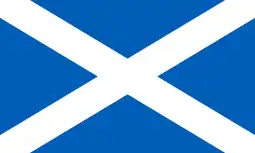 Sandy MacFarlane (as player: Arsenal 1896–1897; Chelsea 1913–1914)
Sandy MacFarlane (as player: Arsenal 1896–1897; Chelsea 1913–1914) Jimmy Sharp (as player: Arsenal 1905–1908; Chelsea 1912–1915)
Jimmy Sharp (as player: Arsenal 1905–1908; Chelsea 1912–1915) Leslie Knighton (as manager: Arsenal 1919–1925; Chelsea 1933–1939)
Leslie Knighton (as manager: Arsenal 1919–1925; Chelsea 1933–1939) Bob Turnbull (as player: Arsenal 1923–1924; Chelsea 1925–1928)
Bob Turnbull (as player: Arsenal 1923–1924; Chelsea 1925–1928) Ted Drake (as player: Arsenal 1934–1945; as manager: Chelsea 1952–1961)
Ted Drake (as player: Arsenal 1934–1945; as manager: Chelsea 1952–1961) Tommy Docherty (as player: Arsenal 1958–1961; Chelsea 1961–1962; as manager: Chelsea 1961–1967)
Tommy Docherty (as player: Arsenal 1958–1961; Chelsea 1961–1962; as manager: Chelsea 1961–1967) Allan Young (as player: Arsenal 1959–1961; Chelsea 1961–1969)
Allan Young (as player: Arsenal 1959–1961; Chelsea 1961–1969) Tommy Baldwin (as player: Arsenal 1964–1966; Chelsea 1966–1974)
Tommy Baldwin (as player: Arsenal 1964–1966; Chelsea 1966–1974) Graham Rix (as player: Arsenal 1975–1988; Chelsea 1995)
Graham Rix (as player: Arsenal 1975–1988; Chelsea 1995) Clive Allen (as player: Arsenal 1980; Chelsea 1991–1992)
Clive Allen (as player: Arsenal 1980; Chelsea 1991–1992)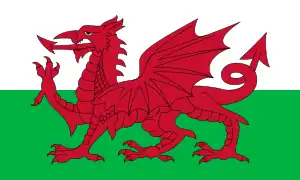 Peter Nicholas (as player: Arsenal 1981–1983; Chelsea 1988–1991)
Peter Nicholas (as player: Arsenal 1981–1983; Chelsea 1988–1991) David Rocastle (as player: Arsenal 1984–1992; Chelsea 1994–1998)
David Rocastle (as player: Arsenal 1984–1992; Chelsea 1994–1998) Emmanuel Petit (as player: Arsenal 1997–2000; Chelsea 2001–2004)
Emmanuel Petit (as player: Arsenal 1997–2000; Chelsea 2001–2004) Nicolas Anelka (as player: Arsenal 1997–1999; Chelsea 2008–2012)
Nicolas Anelka (as player: Arsenal 1997–1999; Chelsea 2008–2012) Ashley Cole (as player: Arsenal 1999–2006; Chelsea 2006–2014)
Ashley Cole (as player: Arsenal 1999–2006; Chelsea 2006–2014) Cesc Fàbregas (as player: Arsenal 2003–2011; Chelsea 2014–2019)
Cesc Fàbregas (as player: Arsenal 2003–2011; Chelsea 2014–2019) Olivier Giroud (as player: Arsenal 2012–2018; Chelsea 2018–2021)
Olivier Giroud (as player: Arsenal 2012–2018; Chelsea 2018–2021)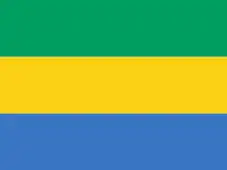 Pierre-Emerick Aubameyang (as player: Arsenal 2018–2022; Chelsea 2022–2023)
Pierre-Emerick Aubameyang (as player: Arsenal 2018–2022; Chelsea 2022–2023)
Chelsea then Arsenal
 Tommy Lawton (as player: Chelsea 1945–1947; Arsenal 1953–1955)
Tommy Lawton (as player: Chelsea 1945–1947; Arsenal 1953–1955).svg.png.webp) Bill Dickson (as player: Chelsea 1947–1953; Arsenal 1953–1956)
Bill Dickson (as player: Chelsea 1947–1953; Arsenal 1953–1956) John Hollins (as player: Chelsea 1963–1975 and 1983–1984; Arsenal 1979–1983; as manager: Chelsea 1985–1988)
John Hollins (as player: Chelsea 1963–1975 and 1983–1984; Arsenal 1979–1983; as manager: Chelsea 1985–1988) George Graham (as player: Chelsea 1964–1966; Arsenal 1966–1972; as manager: Arsenal 1986–1995)
George Graham (as player: Chelsea 1964–1966; Arsenal 1966–1972; as manager: Arsenal 1986–1995) Stewart Houston (as player: Chelsea 1967–1972; as caretaker manager: Arsenal 1995 and 1996)
Stewart Houston (as player: Chelsea 1967–1972; as caretaker manager: Arsenal 1995 and 1996) Alan Hudson (as player: Chelsea 1969–1974 and 1983–1984; Arsenal 1976–1978)
Alan Hudson (as player: Chelsea 1969–1974 and 1983–1984; Arsenal 1976–1978) Colin Pates (as player: Chelsea 1979–1988; Arsenal 1990–1993)
Colin Pates (as player: Chelsea 1979–1988; Arsenal 1990–1993) William Gallas (as player: Chelsea 2001–2006; Arsenal 2006–2010)
William Gallas (as player: Chelsea 2001–2006; Arsenal 2006–2010) Lassana Diarra (as player: Chelsea 2005–2007; Arsenal 2007–2008)
Lassana Diarra (as player: Chelsea 2005–2007; Arsenal 2007–2008) Yossi Benayoun (as player: Chelsea 2010–2013; Arsenal on loan 2011–2012)
Yossi Benayoun (as player: Chelsea 2010–2013; Arsenal on loan 2011–2012) Petr Čech (as player: Chelsea 2004–2015; Arsenal 2015–2019)
Petr Čech (as player: Chelsea 2004–2015; Arsenal 2015–2019) David Luiz (as player: Chelsea 2011–2014 and 2016–2019; Arsenal 2019–2021)
David Luiz (as player: Chelsea 2011–2014 and 2016–2019; Arsenal 2019–2021) Willian (as player: Chelsea 2013–2020; Arsenal 2020–2021)
Willian (as player: Chelsea 2013–2020; Arsenal 2020–2021) Jorginho (as player: Chelsea 2018–2023; Arsenal 2023–present)
Jorginho (as player: Chelsea 2018–2023; Arsenal 2023–present) Kai Havertz (as player: Chelsea 2020–2023; Arsenal 2023–present)
Kai Havertz (as player: Chelsea 2020–2023; Arsenal 2023–present)
Honours
| International competitions | Arsenal | Chelsea |
|---|---|---|
| UEFA Champions League | 0 | 2 |
| UEFA Europa League | 0 | 2 |
| UEFA Cup Winners' Cup | 1 | 2 |
| UEFA Super Cup | 0 | 2 |
| Inter-Cities Fairs Cup | 1 | 0 |
| FIFA Club World Cup | 0 | 1 |
| National competitions | Arsenal | Chelsea |
| First Division / Premier League | 13 | 6 |
| FA Cup | 14 | 8 |
| League Cup | 2 | 5 |
| FA Community Shield | 17 | 4 |
| Total | 48 | 32 |
Head-to-head record
As of match played 21 October 2023[2]
| Club | Pld | W | D | L |
|---|---|---|---|---|
| League | ||||
| Arsenal | 173 | 68 | 51 | 54 |
| Chelsea | 173 | 54 | 51 | 68 |
| FA Cup | ||||
| Arsenal | 21 | 10 | 6 | 5 |
| Chelsea | 21 | 5 | 6 | 10 |
| EFL Cup | ||||
| Arsenal | 8 | 3 | 1 | 4 |
| Chelsea | 8 | 4 | 1 | 3 |
| UEFA Champions League | ||||
| Arsenal | 2 | 0 | 1 | 1 |
| Chelsea | 2 | 1 | 1 | 0 |
| UEFA Europa League | ||||
| Arsenal | 1 | 0 | 0 | 1 |
| Chelsea | 1 | 1 | 0 | 0 |
| FA Community Shield | ||||
| Arsenal | 3 | 1 | 1 | 1 |
| Chelsea | 3 | 1 | 1 | 1 |
| Totals | ||||
| Arsenal | 208 | 82 | 60 | 66 |
| Chelsea | 208 | 66 | 60 | 82 |
Results
Premier League (1992–present)
|
|
- Summary
- As of match played 21 October 2023[48]
|
|
Highest attendances
- Arsenal 2–1 Chelsea: 89,472 (27 May 2017), Wembley (neutral)[49]
- Arsenal 1–2 Chelsea: 88,103 (18 April 2009), Wembley (neutral)[50]
- Arsenal 1–0 Chelsea: 85,437 (2 August 2015), Wembley (neutral)[51]
- Arsenal 1–1 Chelsea: 83,325 (6 August 2017), Wembley (neutral)[52]
- Chelsea 1–1 Arsenal: 82,905 (12 October 1935), Stamford Bridge (Chelsea home)[8]
- Arsenal 2–0 Chelsea: 73,963 (4 May 2002), Millennium Stadium (neutral)[53]
- Arsenal 1–2 Chelsea: 70,073 (25 February 2007), Millennium Stadium (neutral)[54]
- Arsenal 1–1 Chelsea: 68,084 (5 April 1952), White Hart Lane (Tottenham Hotspur home)[55]
- Chelsea 2–1 Woolwich Arsenal: 65,000 (9 November 1907), Stamford Bridge (Chelsea home)[7]
- Arsenal 2–1 Chelsea: 62,746 (20 March 1973), Highbury (Arsenal home)[56]
See also
References
- "Chelsea 6–0 Arsenal". BBC Sport. 22 March 2014. Retrieved 2 February 2017.
- Arsenal vs. Chelsea. Soccerbase. Retrieved on 21 October 2023.
- "Drog the Arsenal hunter". Chelsea F.C. 20 May 2020. Retrieved 23 October 2020.
- "Rivalry Uncovered!" (PDF). The Football Fans Census. December 2003. p. 3. Archived from the original (PDF) on 27 February 2008. Retrieved 1 March 2008.
- "London Football Report" (PDF). Archived from the original (PDF) on 1 March 2014. Retrieved 9 February 2013.
- "Chelsea FC: Ranking the Blues' 5 Most Hated Rivals". Bleacher Report.
- "Chelsea v Woolwich Arsenal, 09 November 1907". 11v11.com. Retrieved 9 February 2017.
- "Attendances". Chelsea F.C. Archived from the original on 26 June 2014. Retrieved 24 January 2021.
- "Top 30 record home attendances in English football history, including Aston Villa, Chelsea, Manchester City and Newcastle". Talksport. 17 November 2018. Retrieved 24 January 2021.
- Derby Debate – Past and Present. review.chelseafc.com (29 November 2008). Retrieved on 9 February 2013.
- "Arsenal 1–2 Chelsea". BBC Sport. 6 April 2004. Retrieved 30 May 2019.
- "The Ashley Cole transfer saga". The Times. London. 8 September 2006. Retrieved 25 April 2010.
- Bandini, Nicky (16 March 2007). "Football: Chelsea ban supporters from bringing celery into their Stamford Bridge stadium". The Guardian. Retrieved 29 December 2019.
- Krishnan, Joe (23 December 2013). "From Kanu's cracker to the 'Snarling Cup' - the top five Arsenal v". Evening Standard. Retrieved 23 May 2019.
- Duleep Allirajah (1 March 2007). "The 'Snarling' Cup: when in doubt, start a fight". spiked-online.com. Retrieved 23 May 2019.
- McNulty, Phil (27 December 2010). "Arsenal 3–1 Chelsea". BBC Sport.
- McCarra, Kevin (27 December 2010). "Ruthless Arsenal come of age to turn Chelsea's slump into a crisis". The Guardian.
- "Chelsea vs Arsenal: 7 Classic Clashes Between London's Millennial Rivals". 90min.com. 21 April 2020. Archived from the original on 27 October 2020. Retrieved 23 October 2020.
- Mattias Karen; Liam Twomey (23 January 2016). "Arsenal vs. Chelsea: 10 memorable games". ESPN. Retrieved 23 October 2020.
- Bower, Aaron (22 December 2013). "Five Best Arsenal vs. Chelsea Clashes in Premier League History". Bleacher Report. Retrieved 23 October 2020.
- Steen, Sam (31 July 2020). "Five best ever games between Chelsea and Arsenal". thefootballfaithful.com. Retrieved 23 October 2020.
- Lewis, Aimee (22 March 2014). "Chelsea 6–0 Arsenal". BBC Sport. Retrieved 30 May 2019.
- "Referee Andre Marriner apologises for Kieran Gibbs red card error". BBC Sport. 23 March 2014. Retrieved 29 December 2019.
- McNulty, Phil (5 October 2014). "Chelsea 2–0 Arsenal". BBC Sport. Retrieved 30 May 2019.
- Cryer, Andy (2 August 2015). "Arsenal 1–0 Chelsea". BBC Sport. UK. Retrieved 4 August 2015.
- "Vintage Arsenal a joy to watch; Conte's defensive crisis". teamtalk.com. 24 September 2016. Retrieved 24 September 2016.
- "Arsenal 3–0 Chelsea". The Guardian. 24 September 2016.
- "Wenger hails Arsenal after win over Chelsea". Bangkok Post. Thailand. 24 September 2016. Retrieved 24 September 2016.
- "Arsenal 2–1 Chelsea". BBC Sport. 27 May 2017. Retrieved 27 May 2017.
- "Arsenal 1–1 Chelsea". BBC Sport. 6 August 2017. Retrieved 6 August 2017.
- Bevan, Chris (29 May 2019). "Chelsea beat Arsenal 4–1 to win Europa League final". BBC Sport. Retrieved 30 May 2019.
- Walker-Roberts, James (29 May 2019). "Chelsea 4–1 Arsenal: Eden Hazard scores twice in Europa League final". Sky Sports. Retrieved 30 May 2019.
- "FA Cup final 2020: Arsenal 2–1 Chelsea – Aubameyang double secures victory". BBC Sport. 1 August 2020. Retrieved 2 August 2020.
- Rose, Gary (12 May 2021). "Chelsea 0–1 Arsenal: Blues boss Thomas Tuchel accepts responsibility for loss". BBC Sport. Retrieved 24 July 2021.
- "Chelsea vs Arsenal: 10 Players Who Played for Both Sides". 90min.com. Archived from the original on 23 September 2015. Retrieved 26 May 2017.
- Lister, Graham. "From Ashley Cole To George Graham – The Footballers Who Have Played For Both Chelsea And Arsenal". Goal.com.
- "Willian the latest to cross Chelsea-Arsenal divide - will Brazilian be a success?". Sky Sports. 14 August 2020. Retrieved 26 October 2020.
- "Giroud won three FA Cups at Arsenal, now he could cause them £40m damage". talkSPORT. 1 August 2020. Retrieved 31 January 2023.
- "'I wanted to show Arsenal!' – Giroud reveals Europa League final motivation to prove Gunners wrong". Goal.com. 30 May 2020. Retrieved 31 January 2023.
- "Petr Cech's Premier League career in numbers". Sky Sports. 15 January 2019. Retrieved 31 January 2023.
- "Cech is proud despite Europa League loss to Chelsea in his final game". Goal.com. 30 May 2019. Retrieved 31 January 2023.
- "Honours". Arsenal F.C. Retrieved 29 August 2020.
- "Men's trophy cabinet". Chelsea F.C. Retrieved 2 August 2023.
- "England – Arsenal FC – Trophies". soccerway.com. Retrieved 24 October 2020.
- "England – Chelsea FC – Trophies". soccerway.com. Retrieved 24 October 2020.
- "Arsenal football club: record v Chelsea". 11v11.com. Retrieved 21 October 2023.
- "Chelsea football club: record v Arsenal". 11v11.com. Retrieved 21 October 2023.
- "Premier League Club Head-to-Head Records & Stats". premierleague.com. Retrieved 21 October 2023.
- "Arsenal v Chelsea, 27 May 2017". 11v11.com. Retrieved 24 January 2021.
- "Arsenal v Chelsea, 18 April 2009". 11v11.com. Retrieved 24 January 2021.
- "Arsenal v Chelsea, 02 August 2015". 11v11.com. Retrieved 9 February 2017.
- "Arsenal v Chelsea, 06 August 2017". 11v11.com. Retrieved 6 August 2017.
- "Arsenal v Chelsea, 04 May 2002". 11v11.com. Retrieved 24 January 2021.
- "Arsenal v Chelsea, 25 February 2007". 11v11.com. Retrieved 5 February 2021.
- "Arsenal v Chelsea, 05 April 1952". 11v11.com. Retrieved 24 January 2021.
- "Arsenal v Chelsea, 20 March 1973". 11v11.com. Retrieved 24 January 2021.
.jpg.webp)
_(cropped_on_Giroud).jpg.webp)
.jpg.webp)
